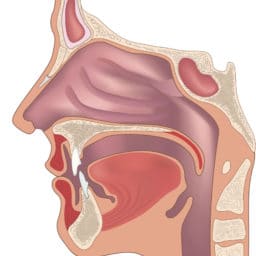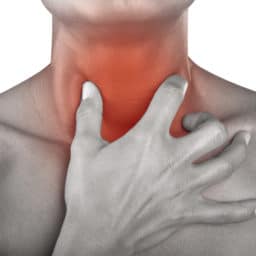Airway Problems

Airway problems are often the result of obstructions of the airway, consisting of the throat, voice box and trachea. These blockages prevent air from entering the lungs either partially or completely, leading to breathing difficulties and a variety of other complications, some potentially life-threatening. What Causes Airway Problems? Airway problems can occur in the upper…
Chronic Cough

A chronic cough is defined as one that lasts eight weeks or longer. More than simply an annoyance, a lingering cough can disrupt your sleep and affect your work. It may be accompanied by other symptoms such as wheezing, shortness of breath, runny nose, congestion and heartburn. If you have a persistent cough that doesn’t…
Hoarseness

Hoarseness is an inflammation of the larynx that results in a change in the voice, making it sound breathy, raspy, scratchy or strained. There may be changes in volume and pitch, as well. Hoarseness falls under the medical category of dysphonia, which refers to voice impairment or any sort of difficulty speaking. What Causes Hoarseness?…
Laryngitis

Laryngitis is swelling and irritation of the larynx (voice box). It causes hoarseness and, in some cases, voice loss. It can be acute (short-lived) or chronic (long-lasting), but is usually the result of a temporary viral infection or vocal strain and clears up quickly. Persistent laryngitis that lasts longer than two weeks could be a…
Neck & Throat Cancer
Neck and throat cancers usually form in the squamous cells lining the inside of the mouth, nose, and throat. They are highly curable if detected early, and often respond well to surgery or radiation treatment. Cancers in this region are classified according to where they are located in the body. They include: Oral cavity. This…
Postnasal Drip

Your body produces mucus constantly throughout the day – one to two quarts, to be exact. It mixes with saliva and is swallowed, a normal and harmless response that you usually don’t notice. When excess mucus is created or it is thicker than usual, it becomes noticeable as it runs down the back of the…
Reflux
Acid reflux, or gastroesophageal reflux disease (GERD), is a chronic digestive condition that causes painful heartburn and regurgitation for millions of Americans every year. It occurs when the contents of the stomach seep backward into the esophagus. What Causes Reflux? Normally, following a meal, a valve on your esophagus – the sphincter – closes, preventing…
Salivary Glands

The salivary glands, located in the mouth and throat, are responsible for producing saliva to keep your food moist, making it easier to chew and swallow. Saliva also aids in digestion, keeps your teeth from decaying and contains antibodies that keep your mouth clean and germ-free. Disorders of the salivary glands can interfere with these…
Sore Throat

A sore throat is a painful but common affliction that everyone suffers from on occasion. It may be the first sign of a cold, the result of strained vocal cords or a symptom of a more serious condition such as strep throat. As miserable as a sore throat can make you feel, in many cases…
Swallowing Disorders

When you swallow, you are chewing food and moving it to the esophagus, a tube that connects to the stomach. Dysphagia, the medical term for difficulty swallowing, is characterized by the sensation of food or liquid getting stuck in the throat or chest. There are numerous factors that can cause swallowing difficulty, most of them…